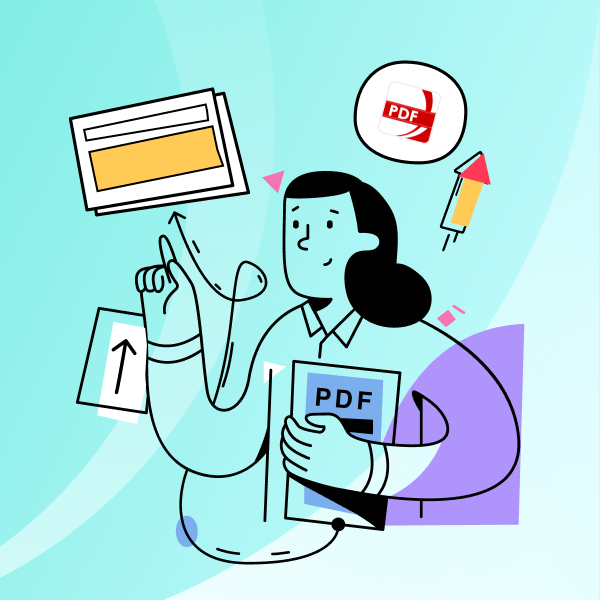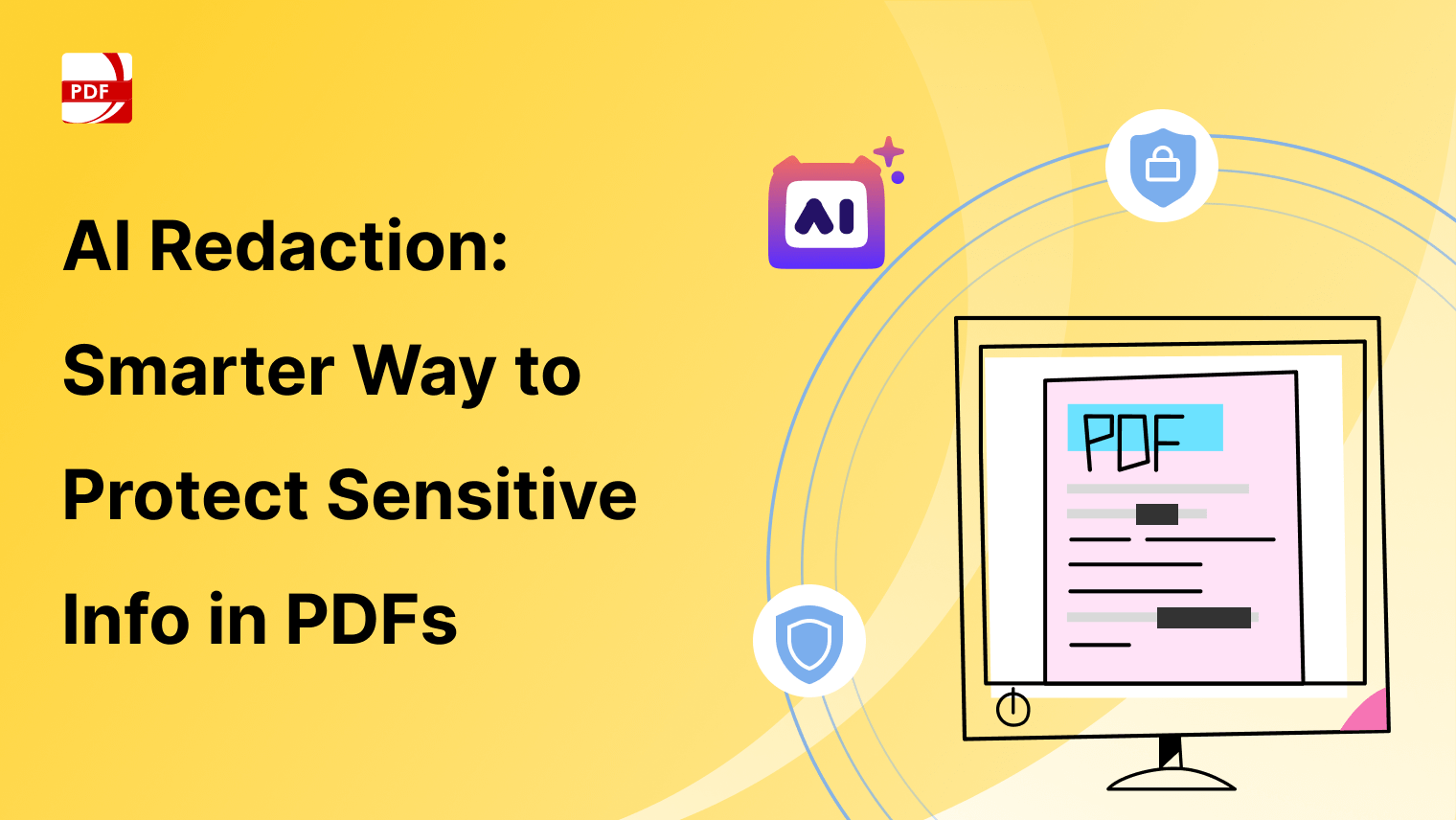Are you experiencing issues while opening PDF Reader Pro on your Windows? This can happen for several reasons. For instance, the program does not have sufficient permissions to function properly, or it could be related to a compatibility issue.
A corrupted or incomplete installation of PDF Reader Pro can also affect the launch of the program on your Windows. In this article, we discuss the potential solutions to help you get your PDF Reader Pro up and running again.
- Close the Background Process and Start Again
- Run as Administrator
- Run the App in Compatibility Mode
- Reinstall PDF Reader Pro
- Rollback Versions
- Run a Malware Scan
- Open Safe Mode
- Let Our Engineer Solve Your Problems
Close the Background Process and Start Again
It's important to recognize that applications operating in the background can consume your PC's resources significantly. This, in turn, may hamper the computer's overall efficiency. We recommend shutting down all applications running in the background and then re-launching PDF Reader Pro for an optimized performance experience.
Here are the easy steps:
-
Press the CTRL+ALT, and then press Delete. The Windows Security window appears;
-
Click Task Manager, and the Windows Task Manager opens;
-
Or simply click CTRL+Shift+ESC and the Task Manager will open at once;
-
In the Applications tab, right-click the program you want to close -> End task;

Run as Administrator
Typically, in Windows 10, programs launch in a standard mode without requiring administrator privileges, allowing them to operate freely. However, if you encounter issues with PDF Reader Pro not initiating, executing it with administrative rights may resolve the problem. Below is the procedure for doing so.
-
Right-click the PDF Reader Pro icon on your desktop, folder, or from the start menu -> Select Run as Administrator;
-
Or search PDF Reader Pro in the start menu -> Run as administrator;

-
To make PDF Reader Pro always run at the admin level, you can right-click the PDF Reader Pro icon on your Windows-> Properties -> Compatibility -> tick “Run this program as an administrator” -> OK;

-
Or right-click the PDF Reader Pro icon on your Windows -> Properties -> Shortcut -> Advanced -> Tick the “Run as administrator.”
Run the App in Compatibility Mode
If you have tried the previous steps and still cannot open PDF Reader Pro, your program may have compatibility issues with Windows 10. You can run PDF Reader Pro in compatibility mode which allows Windows 10 to run the program in earlier Windows versions such as Windows 8, Windows 7, etc.
-
Right-click the PDF Reader Pro icon on your desktop, folder, or from the start menu -> Property;
-
Select Compatibility on the main menu -> Tick “Run this program in compatibility mode for”;
-
Select the Windows version -> OK;

-
If you still can’t open PDF Reader Pro, remember to untick “Run this program in compatibility mode for.”
Reinstall PDF Reader Pro
If you still have issues with opening PDF Reader Pro, reinstalling the program may be a solution. But before that, it is best to make sure that you have removed the program completely from your Windows PC. How to completely remove PDF Reader Pro from your PC?
-
Type PDF Reader Pro in the start menu -> Uninstall;

-
Or go to Settings -> Applications -> Application & Feature -> Select PDF Reader Pro -> Uninstall;
-
Or go to Control Panel -> Select Uninstall a program -> Right-click PDF Reader Pro -> Uninstall.
How to Install PDF Reader Pro
-
Click here to Download PDF Reader Pro for Windows;
-
Install the PDF Reader Pro package that you have downloaded;
-
Try running PDF Reader Pro, and it should open normally.
Rollback Versions
If you are still having problems opening PDF Reader Pro on your computer, a rollback version can be an option for you. Sometimes, the newest version of a program may not be compatible with your computer and cause problems. If so, you can always restore previous versions of programs, including PDF Reader Pro. Our customer support team is working tirelessly to help you solve problems, including rolling back your PDF Reader Pro version according to your wishes.
-
Click here to contact our customer support team;
-
Ensure you provide your name, email address, Windows operating system, and, most importantly, license code.
-
You can also contact us via email at support@pdfreaderpro.com to attach more details about your problem.
-
We encourage you to provide as many details of your problem as you can so that we can fix your problem as soon as possible.
Run a Malware Scan
A malware scan is required periodically to find and eradicate all malicious threats on your computer. Computers that are not regularly scanned may contain malware which can affect the performance of the device and the software in it. Luckily, Windows provides a scanning feature that can help scan your computer for malware.
-
Go to Settings on your computer -> Click Update & Security -> Windows Security -> Virus & Threat Protection;
-
Under Current threats, click Quick Scan.
If you don't find any issues, you can still check your device more thoroughly by running an advanced scan in Windows security.
-
Click Settings -> Tap Update & Security > Windows Security -> Virus & Threat Protection.
-
Under Current threats, select Scan options;
-
Select one of the scan options (Full scan, Custom scan, Microsoft Defender Offline scan) -> Select Scan now.
Note:
Full scan: Check all files and programs currently on your device.
Custom scan: Scan specific files or programs.
Microsoft Defender Offline scan: It will restart your computer and run a deep scan before Windows loads to catch sneaky malware.
Open Safe Mode
Safe Mode is a troubleshooting feature provided by Windows 10. With this feature, you can start your computer without unnecessary features. Safe Mode will put your computer in its most basic state so that problems can be identified. In general, you have to activate Safe Mode manually.
From Settings
-
Go to Settings on your computer -> Update & Security -> Recovery;
-
In the Advanced menu -> Select Restart now;
-
After your PC restarts to the Choose an option screen, select Troubleshoot > Advanced options > Startup Settings > Restart;
-
A list of options will appear to enter Windows 10 Safe Mode. Select 4 or F4 to start Safe Mode. Select 5 or F5 for Safe Mode with Networking if you need to use the internet.
From Sign-in Screen
-
On the Windows sign-in screen, press Shift while selecting Power -> Restart;
-
The screen will display Choose an option, select Troubleshoot > Advanced options > Startup Settings > Restart.
-
list of options will appear to enter Windows 10 Safe Mode. Select 4 or F4 to start Safe Mode. Select 5 or F5 for Safe Mode with Networking if you need to use the internet.
To get out of Safe Mode to normal mode, you need to restart your computer. However, if it doesn't work and your system somehow still boots into Safe Mode even after restarting, follow these steps below:
Strategic Vision: Business Plan Outline
A detailed guide for crafting your business success story.
-
Press the Windows logo key+R;
-
Type msconfig in the Open box -> OK;
-
Under Boot options, clear the Safe Boot checkbox.
Let Our Engineer Solve Your Problems
If you are still having problems opening PDF Reader Pro, you can ask our engineer for help through our customer service. Follow the steps below:
-
Click here to contact our customer support team or contact us at support@pdfreaderpro.com;
-
Provide your name, email address, Windows operating system, and, most importantly, license code.
-
Provide us with your device information, and here’s how to get it:
a. Press the Windows Flag key+R at the same time;
b. Type into the box, which opens MSINFO32, then click OK;
c. The .NFO file will now open. Click File and select Save;
d. Rename the file with your name and save the file;
e. Attach files to this email when you respond to us.
-
Provide us with some additional information, such as:
a. Check if the configuration is dual-core.
b. Press Windows (icon) key + Shift + ESC -> Tap Performance.
c. Whether your system version has been updated before this problem occurs. Select Start -> Settings -> Update & Security -> Windows Update, then select Check for updates.
d. Whether the .net framework is enabled.
-
-
-
From the Start Menu, type Run -> Enter regedit in the Command Prompt-> OK;
-
Look for the following subkey in the Registry Editor: HKEY_LOCAL_MACHINE\SOFTWARE\Microsoft\NET Framework Setup\NDP. All installed .NET Framework versions are listed under the NDP drop-down list.
-
-










 Support Chat
Support Chat